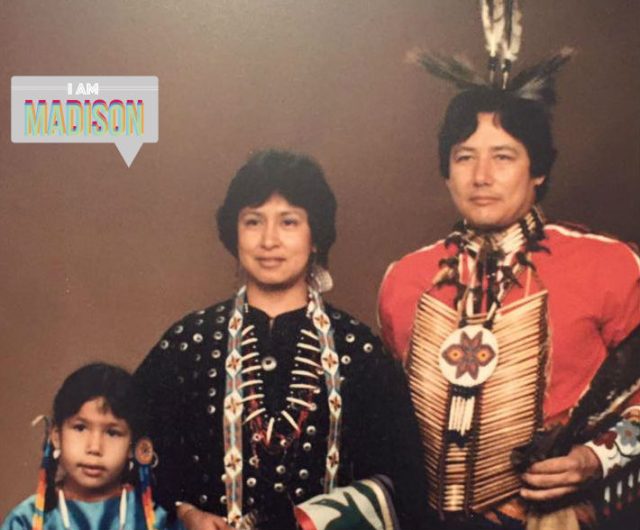 “When the establishment doesn’t understand culture, he would go in and advocate,” says Janice Rice about her late husband, attorney John Beaudin.
“When the establishment doesn’t understand culture, he would go in and advocate,” says Janice Rice about her late husband, attorney John Beaudin.
Beaudin was a beacon of justice and equality, who fought for the rights of underrepresented and underserved people in Wisconsin. With a concentration on General Civil Practice and Indian Law, he managed to serve as a community leader and legal counsel for many people in Wisconsin. He was a change agent who helped those in need receive access to justice. His commitment to the many communities he assisted led to great progress.
 “Many Native people in Wisconsin credit Beaudin with many changes in both the legal and educational systems of the state of Wisconsin through his many years of involvement in the legislative process,” according to the reservation-based and Native-owned publication, News from Indian Country.
“Many Native people in Wisconsin credit Beaudin with many changes in both the legal and educational systems of the state of Wisconsin through his many years of involvement in the legislative process,” according to the reservation-based and Native-owned publication, News from Indian Country.
Beaudin was born in Chicoutimi, Quebec. “His mother was an Ojibwe from Lac Courte Oreilles reservation in Northern Wisconsin and his father was from Quebec,” Rice says.
“In 1957, we moved to Chicago where my dad found work and we kids went to school,” wrote Beaudin in his family history which was published in a book, titled History of Rusk County, Wisconsin, written by the People of Rusk County and compiled by the Rusk County Historical Society.
Beaudin spoke fluent French when he came to Chicago, which affected his adjustment to his new surroundings.

“He was French speaking, so the classmates picked on him a lot because he was French and he dressed still in French style. He didn’t do too well in school because of the ostracism,” says Rice. “He told me that because he wasn’t accepted in Chicago, that he would just take the bus downtown to Chicago Public Library and just spent his time in the library just learning and reading.”
According to Beaudin’s account of his family history, later in 1966, he would enlist in the U.S. Army. He served in the Vietnam War until returning back to the United States to attend school.
For his undergrad, Beaudin studied pre-med at the University of Wisconsin-Milwaukee, where he got involved in Native American organizing.
“He interrupted his college career to become director of the Native American Languages program at UW-M. So, all the different tribes came down to Milwaukee and he was the coordinator for all of them,” Rice says.
Before attending law school at the University of Wisconsin-Madison, Beaudin transferred to the University of Wisconsin-Green Bay. Beaudin graduated with a bachelor’s degree in Creative Communications, which Rice speculates is a result of his experiences with language barriers and community leadership.
The impact he had at the University of Wisconsin-Madison was significant. While in law school, he united Native students and organizations on campus and advocated for their respective needs. During his time on campus he worked closely with the Native student organization Wunk Sheek as well as the Indigenous Law Student Association (ILSA).
When longtime Native American leader and advocate Ada Deer went on sabbatical to work with the U.S. Department of Interior under President Richard Nixon, Beaudin stepped in and taught her class in social work, emphasizing Native issues.
Beaudin graduated from law school in 1980 and began working in private practice shortly after.
“After he graduated he still stayed active with the students. He danced with the students and came to events,” Rice recalls.
Embedded in the community, the young attorney began servicing the greater Madison area and beyond.
“He did legal work for people who didn’t have the money to pay. So, all minorities that really would normally never get represented–he represented them,” Rice says.
In one of Beaudin’s earlier cases, he represented Chief Winneshiek against Wood County. “He represented our tribal chief, because a police officer had shoved our chief back in the early 1980’s in Wood County,” said Rice.
“He worked with a police officer in Bayview community, and Hmong people were getting arrested a lot,” Rice says. It was a time of rapid Hmong migration to Wisconsin, and Beaudin worked to bridge the cultural gap between Hmong tradition and American law. He held sessions and explained laws and regulations that may affect Hmong community members.
Rice shares that Beaudin was especially passionate about environmental rights, with an emphasis on hunting, fishing and mining. He would regularly contest agencies whose regulations did not align with local American Indian communities and their respective cultures. As Chief Judge of Lac Courte Oreilles reservation, Beaudin also commuted from Madison to teach classes on the reservation and hold court bi-weekly.
“I think one thing that stands out to me about John is being vocal and speaking out and not being afraid to stand up for what you believe in. Whether it’s a Native American issue or a minority issue or something where a student or person of color has been ignored,” Rice says.
Beaudin was a bold communicator who lifted voices that were often silenced. From standing in solidarity with his client, dressed in full Native American regalia, to demanding more Native American faculty at the University of Wisconsin-Madison with the students of Wunk Sheek, his legacy is decorated with lessons of perseverance and strength. He died in 1993.
“He didn’t let anything hold him back. He just went forward and did what he felt was right,” says Rice.
I Am Madison is funded by Madison Community Foundation as part of its Year of Giving.




























